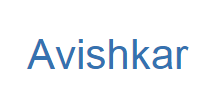Status:
Platform:
Methods:
MicroRNAs (miRNAs) are small regulatory RNA that mediate RNA interference by binding to various mRNA target regions. There have been several computational methods for the identification of target mRNAs for miRNAs. However, these have considered all contributory features as scalar representations, primarily, as thermodynamic or sequence-based features. Further, a majority of these methods solely target canonical sites, which are sites with "seed" complementarity. Here, we present a machine-learning classification scheme, titled Avishkar, which captures the spatial profile of miRNA-mRNA interactions via smooth B-spline curves, separately for various input features, such as thermodynamic and sequence features. Further, we use a principled approach to uniformly model canonical and non-canonical seed matches, using a novel seed enrichment metric.
We demonstrate that large number of seed-match patterns have high enrichment values, conserved across species, and that majority of miRNA binding sites involve non-canonical matches, corroborating recent findings. Using spatial curves and popular categorical features, such as target site length and location, we train a linear SVM model, utilizing experimental CLIP-seq data. Our model significantly outperforms all established methods, for both canonical and non-canonical sites. We achieve this while using a much larger candidate miRNA-mRNA interaction set than prior work.
We have developed an efficient SVM-based model for miRNA target prediction using recent CLIP-seq data, demonstrating superior performance, evaluated using ROC curves, specifically about 20% better than the state-of-the-art, for different species (human or mouse), or different target types (canonical or non-canonical). To the best of our knowledge we provide the first distributed framework for microRNA target prediction based on Apache Hadoop and Spark.
All source code and data is publicly available at https://bitbucket.org/cellsandmachines/avishkar.[1]








